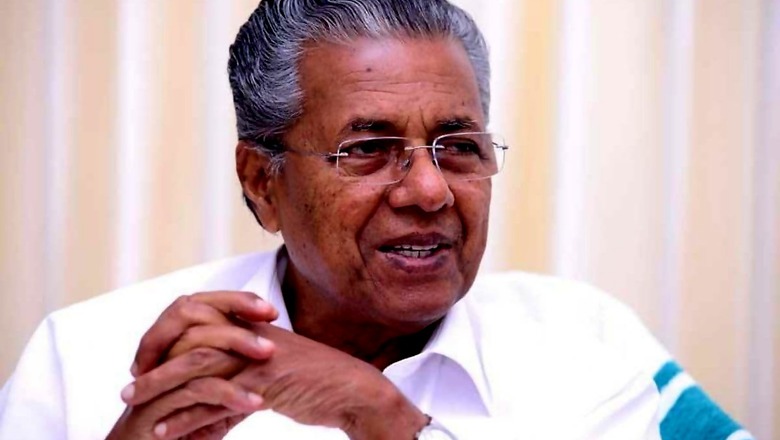
views
If there is one state that can boast of an influential and sizeable expatriate community, it is Kerala. In the southern state, pravasi or NRI community members are known as Non-resident Keralites (NRK). In 1996, in a first-of-its-kind initiative, the state government set up a department, NORKA (Non-resident Keralites’ Affairs), to address grievances of the community. Some years later, in 2002, a full-fledged company called NORKA-Roots wherein the state government had a stake was established to facilitate better interaction between the state and its large expat community and also help Keralites with jobs in other countries.
Registered under Section 25 of the Companies Act, the company’s directors include business leaders of Kerala-origin who are mostly based in Gulf countries, like M. A. Yusuff Ali, Ravi Pillai, Azad Moopen and Kerala Chief Minister Pinarayi Vijayan. Last year, the Kerala government asked stranded Pravasi Malayali to register on the NORKA-Roots platform if they wanted to return in the wake of the COVID-induced lockdown. Even before the Ministry of External Affairs launched the official ‘Vande Bharat’ mission in the first week of May, the Kerala government in April claimed that more than 3 lakh Keralites settled abroad had registered with the NORKA-Roots to return home.
Many think, at this juncture, the Pinarayi Vijayan-led Left government in Kerala began marching to a beat different from that of the Centre. The state government went out on a limb to paint the Centre as a predominant source of conflict.
The Kerala-Delhi Face-off
However, the first major conflict between the state government and the Centre erupted way back in 2018 when the former had tried raising aid from multiple sources following the devastating floods. In August 2018, Chief Minister Vijayan went public with the claim that the UAE government had promised Rs 700 crore to the state, the information conveyed to him by NRK businessman Yusuff Ali, also a director of NORKA-Roots.
What followed is well-known. The Centre made it clear that no such direct aid to any state would be allowed. Stories began appearing on both mainstream and social media that the Centre was acting in spite, denying Kerala its ‘rightful’ claim from the UAE, while doling out a meagre Rs 600 crore against a demand of Rs 2,600-crore special package.
ALSO READ| In Kerala, LDF, UDF, BJP Should be Wary of One Thing—the Sceptical Malayali
The Centre-state standoff reached a crescendo in July last year when central agencies, including the Customs Department, the Income Tax Department, the National Investigation Agency and the Enforcement Directorate, began to crackdown, in tandem, on the perpetrators of a massive gold smuggling operation that was using diplomatic channels. Linked to this smuggling operation was a network involved in hawala transactions. The foundation of this scam was built on the ability of a state government to establish direct access with a foreign country—in this case, through the UAE consulate in Thiruvananthapuram.
Surely, things got murky when linkages were established between Swapna Suresh, a former employee at the UAE Consulate-General’s office and prime accused in the gold smuggling case, and those occupying high positions—both elected and appointed—in the government. Invariably, the protracted investigations and subsequent arrests, including that of top bureaucrat and chief minister’s principal secretary M. Sivasankar, have intensified the Kerala-Delhi face off. The latest in this ungainly saga of retribution is the state government’s decision to recommend a judicial inquiry against central investigative agencies.
Oddly, what is being played out here is a narrative that has an elected state government fighting back the Centre or an underdog punching above its weight against a much stronger opponent. This narrative aims to exploit the ethnocentric streak that runs deep among a section of Malayalis.
The Malayali Pride
True, this sentiment was plumbed by the UDF government as well, when it went all out on the Air Kerala project, a low-cost state airline. The project, largely conceived to connect Kerala to the Gulf, did not take off because the DGCA was willing to grant licence initially only for domestic routes. Meanwhile, the LDF government has gone all guns blazing with Kerala Bank, K-FON (Kerala Fibre Optic Network), K-Rail (Kerala Rail Development Corporation Ltd) to augment rail infrastructure in the state, and a few lesser-known initiatives.
Aiding and abetting this narrative are postulations like how high would Kerala as a separate country rank on social development indicators compared to the rest of India. However, such postulations conveniently iron out glitches like over-dependence on foreign remittances from the celebrated NRK community, which have nosedived following the COVID-triggered economic slowdown.
A state which prides itself on its ‘development’ credentials is still facing age-old issues like double votes. Although opposition has claimed more than 3 lakh double votes across constituencies, the Election Commission said the number of double entries stands at a little over 38,000.
The claims to cultural superiority lie in tatters in the wake of the many scams that have rocked the state—with the solar scam ahead of the 2016 Assembly election to the gold smuggling scam now.
ALSO READ| Squabbles, Smear Tactics, Self-inflicted Injuries: It’s a Dramatic Start to Last Leg of Kerala Poll Campaign
The proud Keralite also has no qualms in holding free food kits doled out by the state. No one seems worried about the dangerous debt trap that the state has fallen into. There is no debate over the latest CAG report that has found the state’s debt portfolio has increased by 70 per cent over a five-year period, from Rs 141,947 crore in 2014-15 to Rs 241,615 crore in 2018-19. It is as if no one wishes to cast a stone that will shatter the façade of well-being.
Unlike in the past, when the smallest of ripples would capsize the boat, the CPM leadership, for good reason, believes political offensive is now built around optics and narratives. Therefore, what matters is not how the LDF government was found wanting in equitable distribution of relief to the flood-affected and its delay in providing rehabilitation to the homeless, but how the chief minister became the captain of Team Kerala. Similarly, as the initial global celebration of the Kerala model of fight back against COVID-19 has given way to a harsh reality check of a failed resistance, the best possible narrative here is no narrative. The onus is on the UDF and the NDA to resurrect that debate.
This is the fourth in a 7-part series on Kerala elections.
Read all the Latest News, Breaking News and Coronavirus News here. Follow us on Facebook, Twitter and Telegram.



















Comments
0 comment